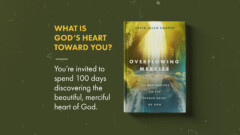Love him or hate him, and there are some on either extreme, Douglas Wilson can flat-out write. He has put this talent to use in writing over thirty books and countless articles, blog posts and the like. In his newest book, Wordsmithy, he offers up a series of hot tips for the writing life, a collection of lessons that he has learned along the way.
I probably need to stop right here to say that I don’t want you to take this little review as a blanket endorsement of Wilson or his previous books or his theological emphases. There is a long list of issues on which he and I would not see eye-to-eye. But what is true is that he thinks deeply and expresses himself with both tremendous wit and clarity.
Wordsmithy is comprised of seven chapters, each of which holds seven tips (I’ll let you work out the math to see just how many tips that is). Here is a brief description of each of those seven chapters:
Know something about the world. You need to know something about the world outside of books. If you don’t learn about what exists outside libraries and bookstores, you will not have any material to work with.
Read. A writer needs to be a constant reader, reading the kind of thing he wishes he could write and the occasional thing that he wouldn’t ever want to write.
Read mechanical helps. Mechanical helps include dictionaries and books of quotations and books on how to write dialogue and so on. These tools are generally not fun or easy to read, but they are crucial tools of the trade.
Stretch before your routines. If you want to write a world-changing novel, you may need to first write a good short story. Start small and build up from there.
Be at peace with being lousy for a while. Anything worth doing is worth doing badly. We don’t need to believe that talent is only innate; instead we can begin poorly, practice hard, and grow in skill.
Learn other languages. The more you know, the more you can know. This means there is a lot of value in learning languages that are upstream from English (Latin, Greek, and so on).
Keep a commonplace book. A commonplace book is a repository for notable words, phrases and ideas. These are little nuggets you can return to or adapt for your own purposes.
If you are a serious writer, then I’m sure you have read a book or two about the craft along the way. This one is different in that it focuses on the writer’s whole life; it deals with lifestyle more than ten-step programs. The best writers make their whole life one of gathering information and working out ideas. And this is where the book is most valuable, in describing writing as a lifestyle.
Let me share a few favorite quotes:
- The fact that you can’t remember things doesn’t mean that you haven’t been shaped by them.
- If cliches were candied fruit, walnuts, and raisins, the Book of Psalms in The Message would be a three-pound fruitcake.
- Your writing advances a particular view of the world. Pretending that it doesn’t just confuses everybody, starting with you.
If you are a writer–a good one or bad one, a new one or a life-long one–or if you would like to be, you will be doing yourself a favor by tracking down a copy of this book, reading it through, marking it up, and doing it all again a few months later.










